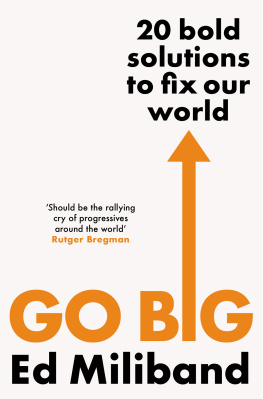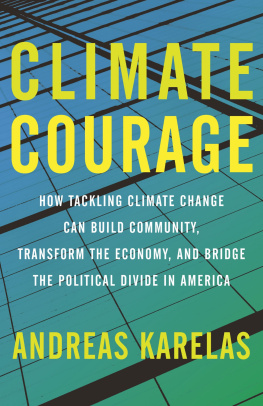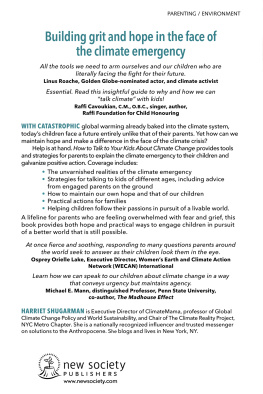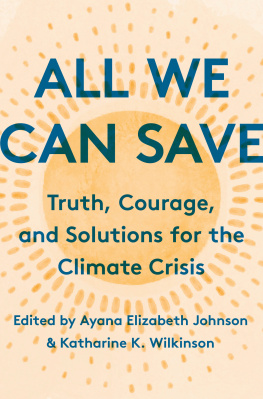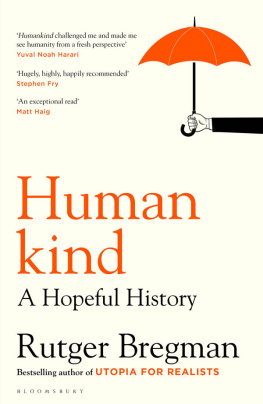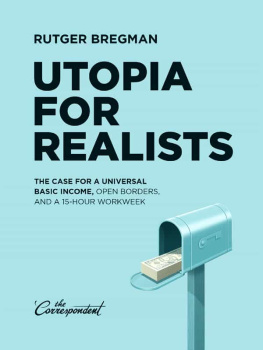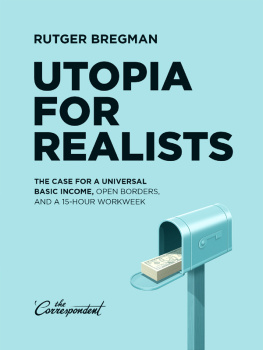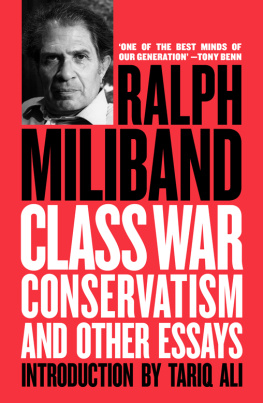penguin.co.uk/vintage
Ed Miliband
GO BIG
20 Bold Solutions to Fix Our World

VINTAGE
UK | USA | Canada | Ireland | Australia
New Zealand | India | South Africa
Vintage is part of the Penguin Random House group of companies whose addresses can be found at global.penguinrandomhouse.com.

First published in Vintage in 2022
First published in hardback by The Bodley Head in 2021
Copyright Ed Miliband 2021
The moral right of the author has been asserted
Cover design Steve Leard
ISBN: 978-1-473-57643-8
This ebook is copyright material and must not be copied, reproduced, transferred, distributed, leased, licensed or publicly performed or used in any way except as specifically permitted in writing by the publishers, as allowed under the terms and conditions under which it was purchased or as strictly permitted by applicable copyright law. Any unauthorized distribution or use of this text may be a direct infringement of the authors and publishers rights and those responsible may be liable in law accordingly.
For Justine, Daniel and Sam
And with profound thanks to Joel
Introduction
Like many modern love stories, it began on the internet. The date was 17 March 2017. Radio presenter Geoff Lloyd now my late in life friend as his wife Sara calls him wrote to someone who used to work for me. Ive had an idea kicking around in my head for a few months, and for my own sanity I thought Id ask the question, however ludicrous. The email went on: Would Ed be interested in working on a podcast with me? I want to explore the new, big ideas from around the world. Id love to play the everyman and have Ed explain accessibly whats coming out of the think tanks, academia and policy units I suspect this is preposterous, but if not, Id love to talk.
The truth is that I was immediately interested. I was a recovering ex-leader. Nobody can quite understand the impact of losing an election unless youve experienced it yourself, although I wouldnt recommend it. One minute youre discussing the phone call you would need to have with Barack Obama the day after your election, the next youre grateful for a call about your PPI.
As Geoff brilliantly saw, lots of people felt incredibly down. By March 2017 we had had Trump as well as Brexit, and the Labour Party was facing one or two issues of its own. We were all drawing inward. As he put it in the email, there was a huge potential audience of frustrated, progressive realists and much of the debate on TV and radio was in a short bite-sized format, favouring a for and against slugfest. What about a podcast format that just pitched ideas to make the world a better place? He also came up with a great name Reasons to be Cheerful.
I was sceptical about whether it would work. When you have been in the front line of politics and then you retreat enforced retreat in my case you lose confidence, you start to get comfortable with your irrelevance. From being someone who delivered hour-long speeches without a note (sometimes successfully and sometimes not) I was now cautious and worried about venturing out into the public square. Lets be frank, this was a pretty ugly place. Broken bottles, old mattresses and pools of vitriol. In the period after I lost the election I did occasionally venture out into the ugliest corner of that square Twitter and people were encouraged, surprised, not to say flabbergasted, that I appeared to have a personality. By the way, if youre one of the people who tweeted, Where was this personality in 2015? I know who you are and where you live.
This is all a long way round of saying the podcast idea came at the right moment. I was frustrated, I wanted a way to get big ideas across, to learn at the same time; and maybe it was a chance not to be too po-faced about it. So I said yes, and in the nearly four years Reasons to be Cheerful has been going weve spoken to academics, activists, campaigners, business people as well as mayors and prime ministers. Its not the big-name guests who have most often moved our listeners, but people new to us all who have had amazing insights and ideas for changing our world.
We have heard hundreds of ideas, from how to tackle inequality and renew our democracy, to ways of addressing the climate crisis, reining in the power of Big Tech and improving life in the workplace. Some ideas have been at the stage of conception, others are already being put into practice around the world. It turns out that if you lift your eyes you can discover solutions to so many of the problems we face. We have gone looking on behalf of our listeners and discovered that the answers are almost always out there somewhere. What I have learned is that the greatest challenge is not devising solutions but finding the imagination and political will to make them happen.
This book is inspired by the podcast but goes beyond it. Both draw on my profound belief that we need big changes to fix the problems we see in our society. But the aim of the book is to do something more than just gather twenty of the best or most radical ideas for change. It aims to ground these ideas in a broader analysis of the condition of our country, and what about it most needs to change. It seeks to paint a wider picture of the kind of society we need. In writing at length about these ideas, the book also offers a more thorough examination of their origins, why they have become a reality in some places and the challenges we face in making them happen.
Why do we need to go big? We need only look at our recent history. In the last decade or so we have seen the biggest financial crash for eighty years, the biggest political crisis since the Second World War Brexit and its aftermath and the worst public health crisis for a hundred years, resulting in the worst economic crisis for three hundred years. All three sets of events demonstrate the need for wide-ranging change.
The financial crisis marked a repudiation of a model of economics that bets everything on ever-greater faith in markets not just in finance as a one-way route to success. That model turned out to be a recipe not just for roaring inequality but also a massive economic crash, a crash which ordinary people who had no responsibility for it paid for with their jobs and the austerity that followed. While some reforms have been made to the banking system, we cannot honestly claim to have acted on the lessons of the crisis. Inequality continues to go unrestrained, assumptions about markets and their power still hold sway, and the squeeze on wages and living standards of most people has yet to be addressed. Acting on the deep implications of the financial crisis remains, more than a decade on, unfinished business.
Then there is Brexit. Wherever you stand on the issue itself, I think that vote and the discontent it signified tells us something profoundly important. The discontent was partly grounded in peoples view about our relationship with the EU, but I am convinced it goes deeper. I learned this from many conversations in my constituency in Doncaster, which voted Leave by one of the largest margins in the country. So many people who voted for Brexit said similar things to me. Im voting for a better future for my children. Things need to change. Things cant get any worse. This discontent cannot be divorced from the aftermath of the financial crash austerity and stagnant wages but nor can it be separated from longer-term trends: the ongoing economic and social shock of deindustrialisation, the deeply exploitative world of work that many people face and fears about prospects for the next generation. Meeting this deep-seated wish for change, for something better, is certainly not going to happen without a significant transformation.
Next page
